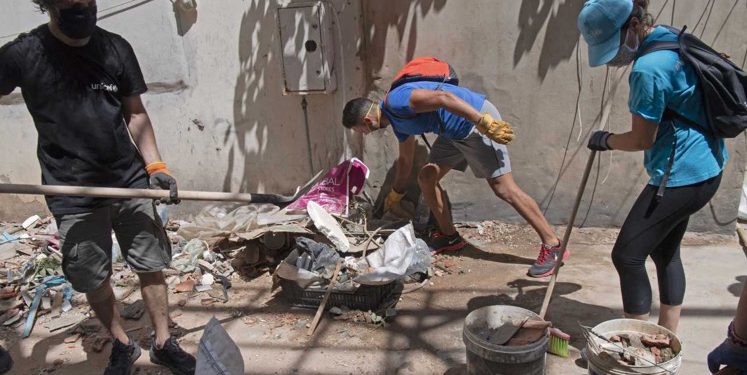Food security is a key priority in the new US$565 million appeal launched by the United Nations and humanitarian partners to help the people of Lebanon.
The fund is aimed at helping move from immediate humanitarian relief toward longer-term economic recovery, following the Beirut Port explosions.
A silo destroyed at the port contained the country’s only large grain silo, and the country, of six million people, has no strategic stockpile of grains.
The appeal will support the immediate delivery of hot meals and food rations. It will also fund deliveries to stabilise the national grain supply.
A series of devastating explosions on 4 August destroyed most of the port, flattened surrounding neighbourhoods, damaged six hospitals and more than 20 health clinics, and destroyed 120 schools. It left 178 people dead, 6,568 injured, and thousands homeless.
UNICEF is providing food and water, along with clothes and detergents, to 700 children and their caregivers.
And a World Food Programme shipment of 17,500 metric tons of wheat flour has been sent, with the first shipment due to arrive by 20 August.
The situation illustrates the Lebanese government’s hand-to-mouth approach to food security
Earlier in the week UN Secretary-General António Guterres said, “The legendary strength of the Lebanese people now faces an additional test.
“In an instant, the explosion flattened vital infrastructure. Surrounding neighbourhoods were levelled. Many thousands are now homeless.
“The shock waves were felt across the city – and indeed across the Mediterranean.”
Although Lebanon imports almost all its wheat, the state did not keep a government-held reserve, a common practice, for use in emergencies, showing a hand-to-mouth approach to food security.
Maurice Saade, the UN’s Food and Agriculture Organization (FAO) representative in Lebanon, has explained that the port silo destroyed in the blast provided temporary storage for imported grain before it was transported to mills.
Prior to the blast, Beirut had been hammered by an economic meltdown and a surge in coronavirus cases.
The situation is made worse by the lack of a dedicated grain terminal and silo in Tripoli port, where vessels are now being diverted.























